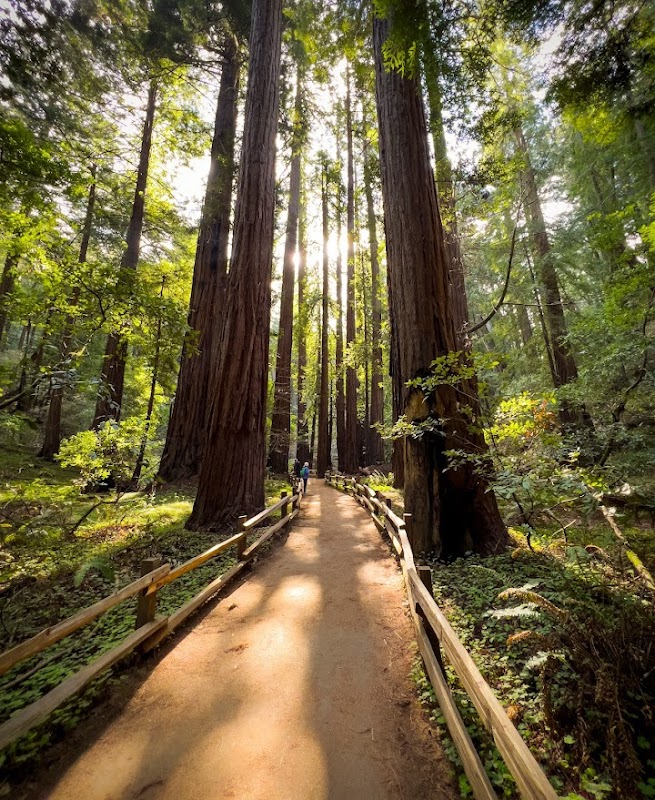
A Unique Outdoor Activities Experience Awaits at San Francisco Whale Tours
Experience the thrill of spotting majestic whales off the coast of San Francisco with San Francisco Whale Tours. This outdoor adventure combines educational wildlife encounters with stunning ocean views, perfect for casual travelers and nature lovers alike.
Adventure Tips
Dress in Layers
Ocean weather can shift quickly. Wear layers to stay warm against wind and spray, with a waterproof outer shell recommended.
Wear Non-Slip Footwear
Boat decks get wet and slippery. Shoes with good grip help keep balance and prevent falls during choppy conditions.
Bring Reusable Water and Snacks
Staying hydrated and energized is key during the 3-4 hour tour. Pack water and light snacks for sustained comfort.
Choose Morning Departures
Calmer waters and clearer skies are common in the mornings, improving both comfort and opportunities to spot whales.
A Unique Outdoor Activities Experience Awaits at San Francisco Whale Tours
San Francisco’s towering skyline gives way to the vast Pacific where whale sightings turn every boat trip into an unfolding story of raw nature. San Francisco Whale Tours offers an outdoor adventure that is as much about patience and observation as it is excitement—an invitation to step beyond city limits and meet the ocean in motion.
Departing from Pier 39, the journey covers roughly 10-15 miles offshore, moving through waters where currents push and pull, challenging the boat’s steady course. You won’t feel like a passive passenger; the spray of the sea and the calls of seabirds fill the senses, reminding you that the marine environment is fiercely independent and alive.
These tours typically last about 3-4 hours, providing an intimate window into the migratory rhythms of gray whales, humpbacks, and even the occasional blue whale. The ocean surface alternates between reflective calm and brisk choppiness, demanding respect and alertness. While there’s little elevation gain on board, the constant movement requires steady footing and a readiness to engage with the unpredictable.
The adventure extends beyond whales alone. The guides point out harbor seals, sea lions lounging on pontoons, and porpoises dancing alongside the craft. Each sighting deepens the connection to this coastal ecosystem, painting a realistic picture of ocean life’s balance.
Preparation is straightforward but essential. Bring layers to handle ocean spray and variable winds, along with sturdy non-slip shoes to maintain grip on a wet deck. Hydration is important, even on cooler days—carry a reusable water bottle and some light snacks. Morning departures maximize calm waters and clear skies, boosting both comfort and photographic opportunities.
Hiking might be absent, but patience and curiosity replace it here. The tour encourages a slow-paced interaction with an environment that’s constantly moving yet sharply aware of its own presence. It teaches that adventure doesn’t always mean fast movement; sometimes it means waiting for a whale’s spine to arch or a pod of dolphins to break the horizon.
In essence, San Francisco Whale Tours is an accessible outdoor activity that blends education, breathtaking wildlife encounters, and hands-on respect for nature’s rhythms. Whether you’re a casual traveler or a nature enthusiast, this experience offers a refreshing break from urban life and a chance to witness the Pacific’s giants up close.
Nearby Trips
All Adventures
Boat Charters
Water Activities
Adventures near San Francisco, California
Discover the unique and memorable adventures that make San Francisco, California special.
Frequently Asked Questions
What types of whales can I expect to see on this tour?
The most commonly sighted whales are gray whales during their migration periods, followed by humpback whales. Occasionally, you might spot blue whales or orcas depending on the season and ocean conditions.
Are the tours suitable for children and seniors?
Yes, the tours accommodate a wide range of ages, though the constant motion of the boat can be challenging for some. It’s recommended that children are supervised and everyone dresses appropriately for the conditions.
How can I reduce the chance of seasickness during the tour?
Choosing morning trips when waters are calmer helps, as does taking preventive anti-nausea medication beforehand. Staying above deck and focusing on the horizon also eases motion discomfort.
Can I bring my camera onboard, and are there good photo opportunities?
Absolutely. Bring cameras with zoom lenses if possible, as many sightings happen at a distance. Early morning light often provides the best clarity and contrast for wildlife photography.
Is the boat tour environmentally responsible?
San Francisco Whale Tours follow guidelines to minimize disturbance to marine life, including maintaining safe distances from whales and avoiding excessive noise. Education about conservation is part of the tour experience.
What should I do if there is inclement weather on the day of the tour?
Tours may be rescheduled or canceled based on safety concerns. It’s best to check weather conditions ahead and confirm your booking policies to plan accordingly.
Recommended Gear
Waterproof Jacket
Protects against ocean spray and variable weather, a must-have on all trips.
Non-Slip Shoes
Ensures safety on wet and slippery boat decks.
Binoculars
Enhances wildlife viewing from a distance, especially for spotting whales and birds.
Reusable Water Bottle
Keeps you hydrated throughout the multi-hour tour, essential for comfort.
Local Insights
Hidden Gems
- "Angel Island view from the water"
- "The lesser-known Seal Rock sightings"
- "Early morning seabird rookeries near Alcatraz"
Wildlife
- "California sea lions"
- "Common murres"
- "Harbor porpoises"
- "Brown pelicans"
History
"Whale watching in San Francisco reflects decades of conservation efforts following extensive whaling that once threatened local populations. The city’s fishing and maritime heritage ties closely to understanding and protecting marine life today."
